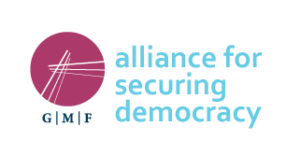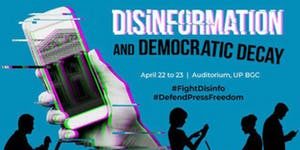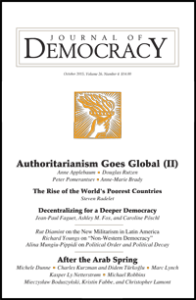 Russia’s electoral interference campaigns and attacks on democracy are a national security issue, demanding a bipartisan response, according to Jamie M. Fly and Laura Rosenberger of the Alliance for Securing Democracy.
Russia’s electoral interference campaigns and attacks on democracy are a national security issue, demanding a bipartisan response, according to Jamie M. Fly and Laura Rosenberger of the Alliance for Securing Democracy.
Unfortunately, authoritarian interference continues largely unchecked, they write for Foreign Affairs:
 In January, FBI Director Cristopher Wray warned Congress: “Not only have the Russians continued [their interference campaign] in 2018, but we’ve seen indications that they’re continuing to adapt their model and that other countries are taking a very interested eye in that approach.” China has used financial, economic, and information tactics to interfere in political processes in Australia and New Zealand, and the U.S. intelligence community has warned that it might do the same in the United States. Iran has spread pro-regime and anti-American content through fake accounts on social media. Even U.S. partners such as Qatar, Saudi Arabia, and the United Arab Emirates have hacked one another as well as in some cases, U.S. citizens, and weaponized (potentially altered) information in leaks to U.S. media outlets in an effort to influence U.S. policy debates. RTWT
In January, FBI Director Cristopher Wray warned Congress: “Not only have the Russians continued [their interference campaign] in 2018, but we’ve seen indications that they’re continuing to adapt their model and that other countries are taking a very interested eye in that approach.” China has used financial, economic, and information tactics to interfere in political processes in Australia and New Zealand, and the U.S. intelligence community has warned that it might do the same in the United States. Iran has spread pro-regime and anti-American content through fake accounts on social media. Even U.S. partners such as Qatar, Saudi Arabia, and the United Arab Emirates have hacked one another as well as in some cases, U.S. citizens, and weaponized (potentially altered) information in leaks to U.S. media outlets in an effort to influence U.S. policy debates. RTWT
 China and Russia are not merely nibbling away at the edges of the international system. They are reaching into the heart of the democratic world, according to a new analysis from the Center for a New American Security. The Chinese challenge in particular could eventually pose a severe threat to the global balance of power and the dominance of the democracies, the authors add. RTWT.
China and Russia are not merely nibbling away at the edges of the international system. They are reaching into the heart of the democratic world, according to a new analysis from the Center for a New American Security. The Chinese challenge in particular could eventually pose a severe threat to the global balance of power and the dominance of the democracies, the authors add. RTWT.
Policy differences should be secondary to defending democratic norms and institutions, says Tom Malinowski, a former head of the State Department’s bureau of Democracy, Human Rights and Labor.
“We know the country’s in crisis. We know that this is not a time for transforming America. This is a time for saving America, preserving America,” he tells POLITICO. “And there will be plenty of time, if we succeed in preserving our institutions, preserving our democracy, there will be plenty of time in the coming years to argue about differences in policy.”







